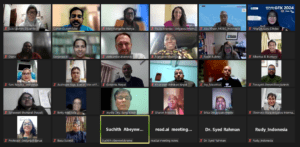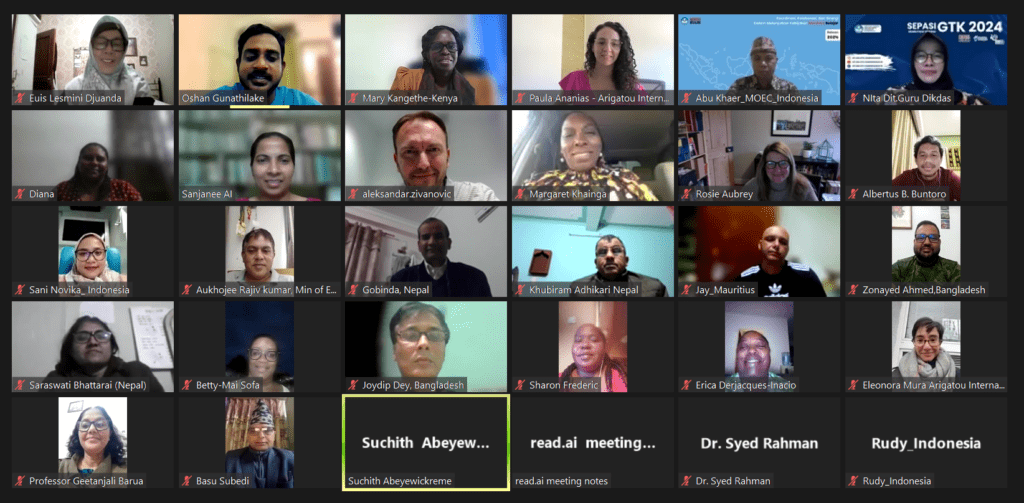On 08 February 2023, 35 fellows of the Ethics Education Fellowship gathered online to share the results of the Monitoring, Evaluation, and Learning (MEL) process. These key findings inspired the fellows to streamline their national advocacy plan for the advancement of ethics education integration for the year 2024.

The MEL process was conducted during the implementation of ethics education with children in selected schools in Bangladesh, Indonesia, Kenya, Mauritius, Nepal and Seychelles, under the Ethics Education Fellowship program. As part of the program, 323 educators across the participating countries were trained to incorporate ethics education into their teaching methodologies. This effort resulted in reaching 7,334 children, showcasing positive.
The MEL process was carried out under the leadership and guidance of the Guerrand-Hermes Foundation for Peace and the KAICIID Dialogue Centre. The objectives of this meeting were to receive feedback from the fellows on the findings, create a space for reflection on their current progress, and initiate discussions for future advocacy efforts at the national level based on the recommendations found in the MEL report. To facilitate this, the session was conducted in a participatory manner where the fellows were encouraged to share their own reflections and perspectives on the findings.
The session was moderated by Ms. Mary Kangethe from the Kenya National Commission for UNESCOMs. Ms. Rosie Aubrey, Researcher from the Guerrand-Hermes Foundation for Peace, and Mr. Alexander Zivanovic, Monitoring and Evaluation Officer from the KAICIID Dialogue Centre presented the key findings to the fellowship cohort. Some of these key findings included:
- The Fellowship and its components bear a high level of relevance to all six countries’ local contexts and educational priorities.
- It contributes to and strengthens the implementation of other value-based educational programs that already exist in national curriculums.
- There are high expectations for the program to address wider societal challenges such as discrimination, bullying, harassment, and radicalization.
- The program responds to the learners’ needs for affirmation of values in the real-world context, space for reflection and dialogue.
- There is evidence of professional and personal growth of the fellows and teachers, also impacting the larger community.
The learnings from the MEL process also showcased the areas that need attention for the sustainability of the program such as updating the stakeholder maps to capture further support, identifying synergies within local educational initiatives to find intersections of collaboration, and mapping the relevant policies to allow local integration of ethics education.
Based on the sharings, the fellows reflected upon their personal experiences and potential opportunities. To leverage these findings and experiences, the group also decided to carry out country-specific advocacy planning meetings in the upcoming days, where the fellows are expected to collaborate in developing their own national advocacy plans to advance and sustain the impact of the Fellowship program with the support of the Fellowship partners.
